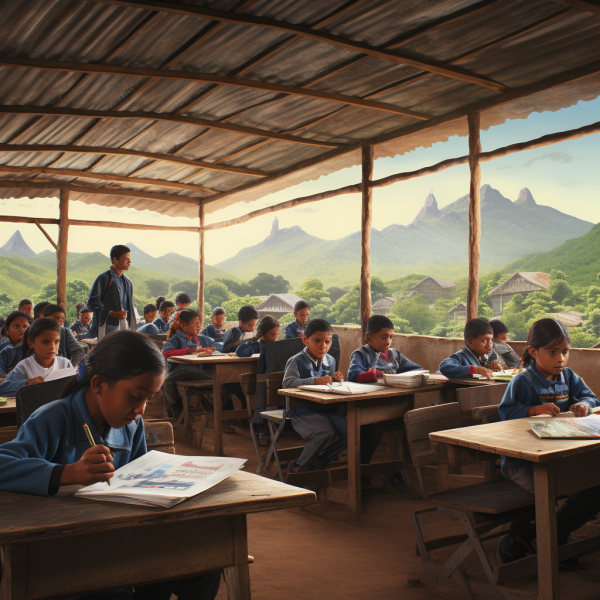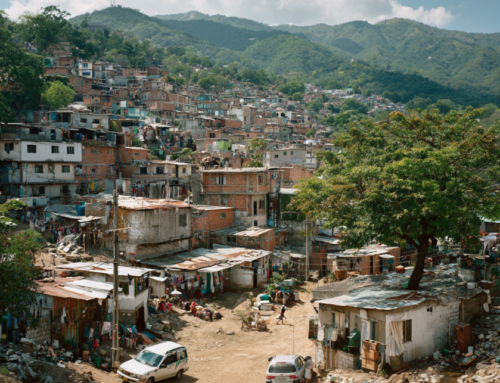By Michael Savage of New Canaan, CT
Honduras, a beautiful Central American nation with a rich cultural heritage, is unfortunately grappling with the harsh reality of family poverty.
In the face of economic challenges and social disparities, education emerges as a powerful catalyst for change and how to solve the poverty problems of Honduras.
This article explores the pivotal role education plays in breaking the chains of poverty that bind many families in Honduras, offering hope and a pathway towards a brighter future.
Understanding the Landscape
Honduras faces multifaceted challenges that contribute to the prevalence of family poverty. Factors such as limited access to quality healthcare, insufficient job opportunities, and socio-political instability create a complex web that traps families in a cycle of poverty.
Amidst these challenges, education stands out as a beacon of hope, holding the potential to transform lives and break the intergenerational transmission of poverty.
It was partly due to the lack of access to quality education that my wife Sandra and I established the Savage-Rivera Foundation to supply necessary goods to impoverished Honduran families.
Access to Education in Honduras
One of the primary barriers to overcoming family poverty in Honduras is the lack of access to quality education.
Many families, particularly in rural areas, struggle to send their children to school due to financial constraints and a scarcity of educational resources. Initiatives aimed at improving school infrastructure, providing scholarships, and ensuring the availability of educational materials are crucial steps in addressing this challenge.
Moreover, fostering community awareness about the importance of education can encourage parental involvement in their children’s academic journey.
Skill Development for Economic Empowerment
Education is not merely about acquiring knowledge; it is a powerful tool for skill development. By equipping individuals with relevant skills, education empowers them to break free from the cycle of poverty.
In Honduras, vocational training programs that align with the needs of the job market can significantly enhance the employability of individuals. By focusing on practical, job-oriented skills, education becomes a direct pathway to economic empowerment, enabling families to secure stable sources of income.
Promoting Gender Equality through Education
Empowering women through education is a key strategy in overcoming family poverty in Honduras. Gender disparities often exacerbate the challenges faced by families, with women disproportionately affected by poverty. Educational programs that prioritize girls’ access to schooling and emphasize gender equality can play a pivotal role in changing societal norms.
When women are educated, they are more likely to participate in the workforce, contribute to family income, and make informed decisions about their families’ well-being.
Breaking the Cycle of Generational Poverty in Honduras
Education serves as a powerful agent in breaking the cycle of generational poverty. When children have access to quality education, they are better equipped to escape the constraints of their circumstances.
By fostering a culture of learning and critical thinking, education empowers individuals to challenge systemic issues contributing to poverty, creating a ripple effect that extends to future generations.
Community Engagement and Support
To truly harness the transformative power of education, community engagement and support are crucial. Collaboration between government and society institutions, non-governmental organizations, and local communities can lead to the development of comprehensive strategies that address the unique challenges faced by each community. By involving community members in the decision-making process and tailoring educational interventions to local needs, sustainable solutions can be implemented.
Conclusion
Education stands as a beacon of hope in the fight against family poverty in Honduras. By addressing barriers to access, promoting skill development, ensuring gender equality, and fostering community engagement, education becomes a formidable force for positive change. As individuals and communities come together to prioritize education, they not only break the chains of poverty but also pave the way for a more prosperous and equitable future for Honduras.
ABOUT MIKE SAVAGE OF NEW CANAAN, CT
Michael Savage from New Canaan is the CEO and sole shareholder of 1-800 Accountant that helps businesses with their accounting services and needs through cutting-edge technology and customer support. Mike Savage also has created a foundation with his wife Sandra to provide goods and relief for impoverished children and families in Honduras.
In his spare time, Savage enjoys creating unique koi ponds, collecting Michael Jordan sneakers, vintage Lego sets, and admiring muscle cars and unique pop art. He and his wife also spearhead the Savage-Rivera foundation to help impoverished families in Honduras.




